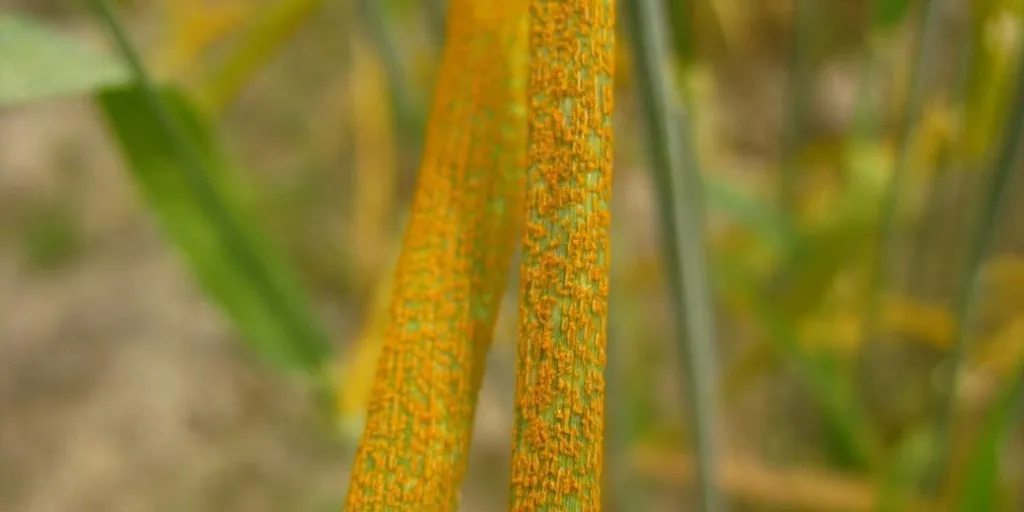In the heart of Saudi Arabia, a groundbreaking study is unfolding that could reshape the future of wheat farming and, by extension, the global food supply chain. Dr. AlHusnain Latifa, a researcher at the Department of Biology, College of Science, Princess Nourah bint Abdulrahman University in Riyadh, has been delving into the genetic secrets of bread wheat (Triticum aestivum L.), with a particular focus on stripe rust resistance. This research, published in the open-access journal ‘Open Life Sciences’ (which translates to ‘Otwarte Nauki o Życiu’ in English), is not just about understanding a plant disease; it’s about securing our food future.
Stripe rust, caused by the fungus Puccinia striiformis, is a significant threat to wheat crops worldwide, leading to substantial yield losses. The economic impact is staggering, with estimates suggesting that stripe rust costs the global wheat industry billions of dollars annually. Traditional methods of controlling the disease, such as fungicides, are becoming less effective and more environmentally harmful. This is where Dr. Latifa’s research comes into play.
The study focuses on the heritability of durable resistance to stripe rust in bread wheat. “Understanding the genetic basis of resistance is crucial for developing wheat varieties that can withstand stripe rust without relying heavily on chemical interventions,” Dr. Latifa explains. By identifying the genetic markers associated with durable resistance, breeders can develop new wheat varieties that are not only high-yielding but also resilient to this devastating disease.
The implications for the agricultural sector are profound. Durable resistance means fewer crop losses, which translates to more stable food supplies and lower prices for consumers. For farmers, this means increased profitability and reduced reliance on costly pesticides. “This research is a game-changer,” says Dr. Latifa. “It provides a sustainable solution to a long-standing problem, benefiting farmers, consumers, and the environment.”
The study’s findings could also have a ripple effect on related industries. The food processing sector, for instance, relies heavily on a steady supply of wheat. Stable wheat production ensures that bread, pasta, and other wheat-based products remain affordable and accessible. Additionally, the energy sector, which uses wheat as a feedstock for biofuels, could see more consistent and cost-effective raw material supplies.
Looking ahead, Dr. Latifa’s research opens up new avenues for genetic studies in wheat and other crops. “This is just the beginning,” she notes. “By understanding the genetics of resistance, we can apply similar approaches to other diseases and pests, making our food systems more resilient overall.”
As the world grapples with the challenges of climate change and a growing population, research like Dr. Latifa’s offers a beacon of hope. It underscores the importance of investing in agricultural research and highlights the potential of genetic studies to transform our food systems. In a world where food security is increasingly under threat, this research is a vital step towards a more sustainable and secure future.

